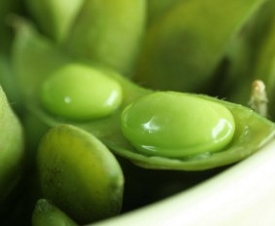 Is butter bad for you? For decades, the food processing industry has used advertising campaigns to successfully lie about the urgent and proven need to replace “unhealthy” butter with “healthy” margarine. But now we know that this teaching was nothing more than made-up. In the battle of margarine vs butter, you may now be surprised which comes out on top.
Is butter bad for you? For decades, the food processing industry has used advertising campaigns to successfully lie about the urgent and proven need to replace “unhealthy” butter with “healthy” margarine. But now we know that this teaching was nothing more than made-up. In the battle of margarine vs butter, you may now be surprised which comes out on top.
Even back in the 60s and 70s sufficient scientific evidence indicated that butter was far better than margarine for good health. Who knew? Nevertheless, the industrial fake food industry relentlessly convinced millions of us to eat margarine for health reasons. The commercial processed fake food industry merged with Madison Avenue, the AMA, and mainstream media to instill a whopper of a lie by reinforcing margarine as better for you. They claimed in unison that saturated fats made you fat and promoted cardiovascular disease. Continue reading











